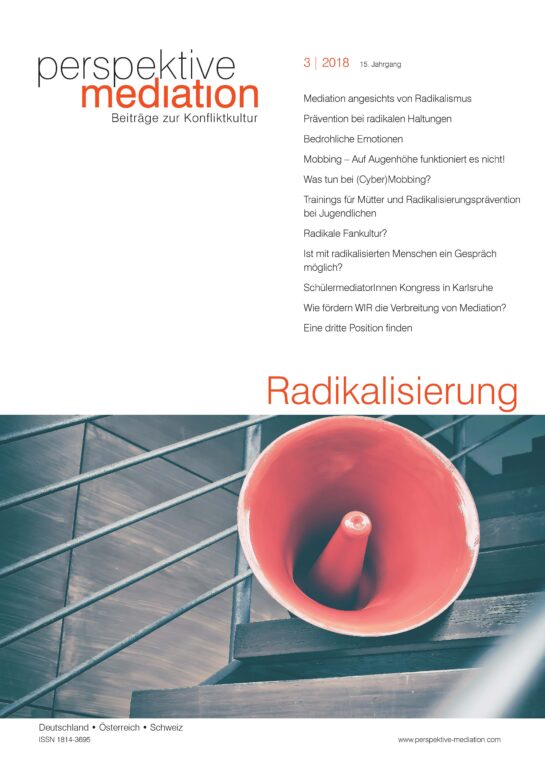In an effort to close the gap in the scholarly understanding of P/CVE work, this article draws on psychodynamic considerations and a new approach to prevention. Based on the case study example of the ‘MotherSchools: Parenting’ for Peace’ Model—developed by the international nonprofit organisation Women without Borders (WwB)—this article will consider the unique potential of mothers in security and the effectiveness of applying developmental psychology to counter-extremism strategies.
Youth radicalisation has received widespread attention since the 9/11 attacks in 2001. This article argues that our understanding of radicalisation and terror-related processes will remain incomplete so long as inadequate methods and means are used in defining the subject. While psychodynamic approaches remain rare, research over the past four decades instead has focused on social-empirical models, which are limited due to their descriptive nature. As a result, we are prone to view terrorist events as a ‘mystery’. In an effort to close the gap in the scholarly understanding of prevention work, the authors will draw on psychodynamic considerations and a new approach to P/CVE. Based on the case study example of the ‘MotherSchools: Parenting’ for Peace’ Model—developed by the international nonprofit organisation Women without Borders (WwB)—this article will consider the unique potential of mothers in security and the effectiveness of applying developmental psychology to prevention strategies.


